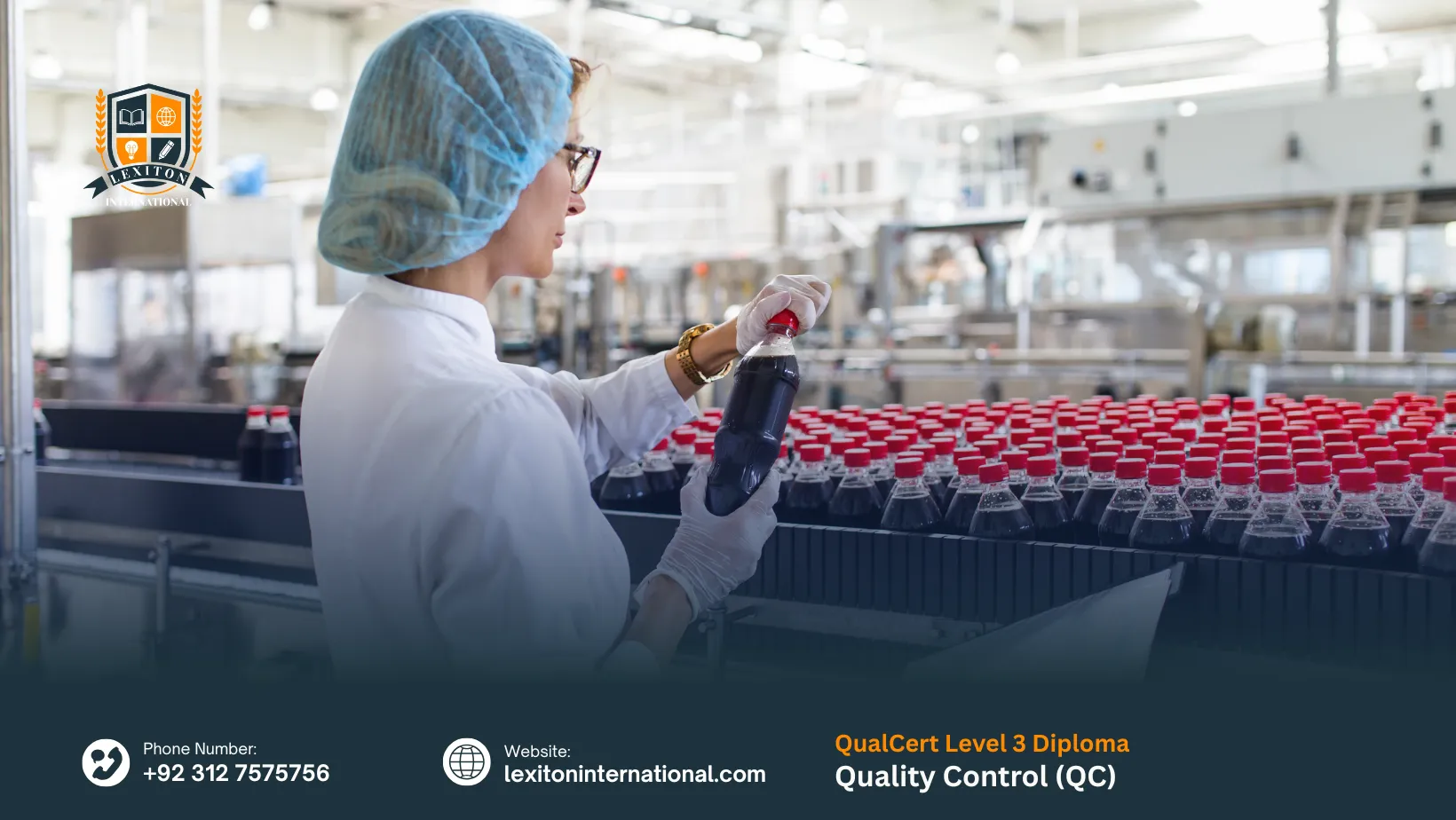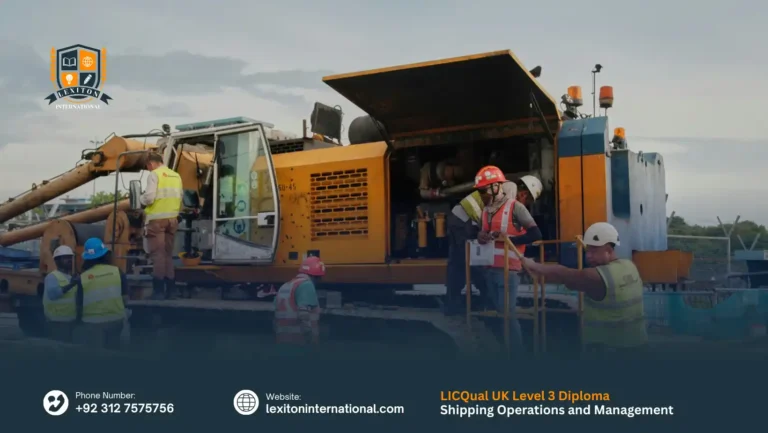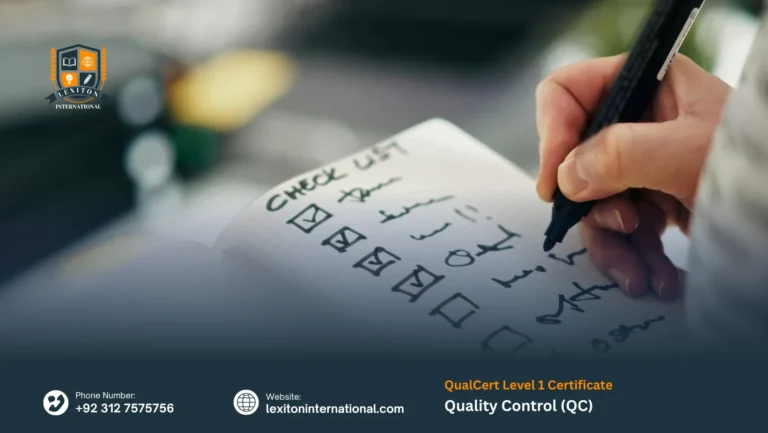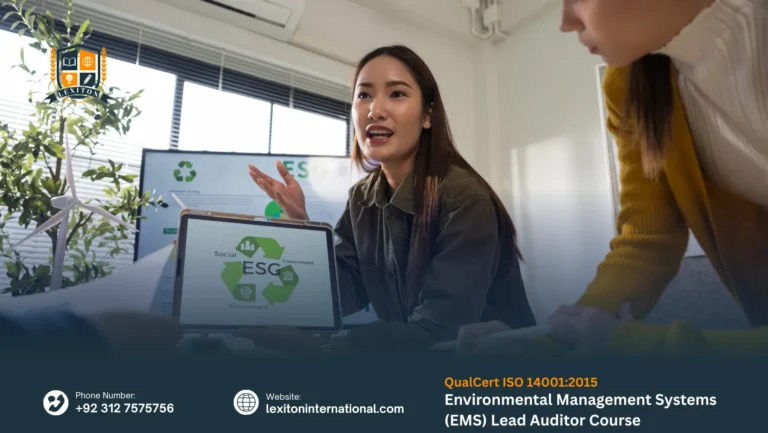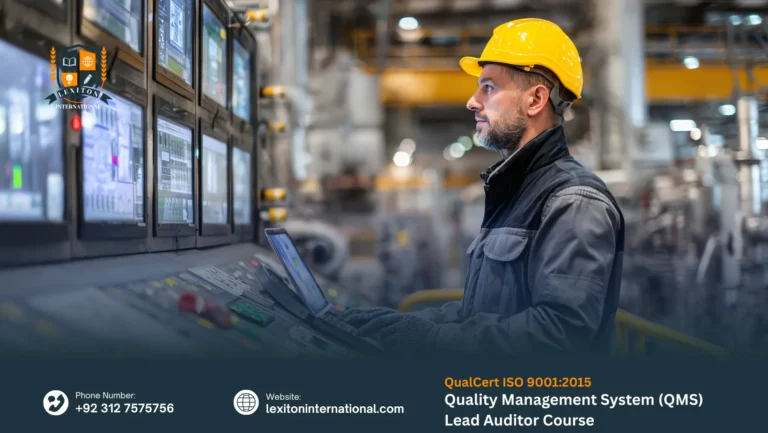The QualCert Level 3 Diploma in Quality Control (QC) is a comprehensive qualification designed to provide learners with the essential knowledge, skills, and techniques required to implement and manage quality control processes in a variety of industrial and construction settings. This diploma equips learners with a solid understanding of quality standards, inspection procedures, and measurement techniques, enabling them to ensure products and services consistently meet specified requirements. The program emphasizes practical application, combining theoretical knowledge with hands-on learning to prepare learners for real-world quality control tasks.
Throughout the course, learners will explore key topics including quality planning, documentation, inspection methods, testing procedures, and compliance with national and international standards. The curriculum also covers risk assessment, continuous improvement strategies, and corrective and preventive actions, enabling learners to identify, analyze, and resolve quality issues effectively. By engaging with case studies, simulations, and practical exercises, learners develop the ability to maintain high standards of accuracy, consistency, and efficiency in their work.
Graduates of this diploma are prepared to contribute effectively to quality control teams, production environments, and technical operations across diverse industries. They acquire the competencies required to monitor processes, verify product quality, and support organizational compliance with quality management systems. Additionally, this qualification provides a pathway for further professional development in quality assurance, inspection, and industrial management, equipping learners with the skills to progress into supervisory or specialist roles within the quality control sector.
To ensure learners are well-prepared to meet the academic and technical demands of this qualification, applicants for the QualCert Level 3 Diploma in Quality Control (QC) must meet the following entry requirements:
- Age Requirement: Applicants must be 16 years or older at the time of enrolment.
- Educational Background: A Level 2 Diploma in Engineering, Manufacturing, Construction, or a related technical field is recommended.
- Alternative Education: Candidates with relevant vocational qualifications, certificates, or practical experience in quality control, production, or inspection roles may also apply.
- Work Experience: Learners with 1–2 years of relevant industry experience may be accepted based on their professional background, particularly in manufacturing, construction, or laboratory environments.
- Technical Knowledge: Applicants should have a basic understanding of measurement techniques, inspection processes, and quality standards.
- English Language Proficiency: Non-native speakers must have an IELTS score of 5.0, CEFR Level B1, or equivalent English qualification to understand course materials and assessments.
- Mathematical Skills: Learners should possess basic mathematical and analytical skills to perform measurements, calculations, and data analysis.
- Computer Literacy: A fundamental understanding of computer applications is recommended for accessing digital quality control tools, reporting, and documentation.
Mandatory Units
This QualCert Level 3 Diploma in Quality Control (QC) course offers 60 Credits, requiring a Total Qualification Time (TQT) of 300 hours, including 210 Guided Learning Hours (GLH). It is designed for efficient and focused skill development in Quality Control (QC).
Learning Outcomes of QualCert Level 3 Diploma in Quality Control (QC):
Quality Control in Structural Engineering
- Explain the principles and objectives of quality control in structural engineering projects
- Identify key standards, regulations, and compliance requirements for structural works
- Evaluate structural components and processes to ensure quality adherence
- Apply inspection techniques to monitor and maintain structural integrity
- Analyze quality control documentation and reporting practices
- Develop strategies to prevent defects and ensure reliability in construction projects
Concrete and Steel Testing Methods
- Demonstrate knowledge of material properties and their impact on construction quality
- Apply standard testing methods for concrete and steel, including strength and durability tests
- Interpret test results to determine compliance with project specifications and standards
- Identify common material defects and propose corrective measures
- Evaluate laboratory and on-site testing procedures for accuracy and reliability
- Maintain proper documentation of testing results for audit and compliance purposes
Environmental Impact of Construction
- Explain the environmental challenges and impacts associated with construction activities
- Assess construction processes for potential ecological risks and sustainability concerns
- Apply environmental regulations and best practices in construction projects
- Develop strategies to minimize waste, pollution, and energy consumption
- Evaluate environmental impact assessment reports for compliance and mitigation measures
- Promote sustainable construction practices in quality control procedures
Statistical Methods in Quality Control
- Explain the role of statistical analysis in monitoring quality performance
- Apply statistical techniques to collect, analyze, and interpret quality data
- Use control charts, sampling methods, and process capability studies in QC
- Evaluate trends and variations in quality metrics to identify potential issues
- Apply statistical reasoning to support decision-making in quality management
- Demonstrate proficiency in using software tools for statistical analysis in QC contexts
Risk Management in Construction Projects
- Identify potential risks that may affect quality and project delivery
- Apply risk assessment techniques to evaluate the probability and impact of risks
- Develop risk mitigation and contingency plans to maintain quality standards
- Monitor and review risk management processes throughout the project lifecycle
- Analyze case studies to understand the consequences of poor risk management
- Integrate risk management strategies into overall quality control planning
Continuous Improvement in QC Practices
- Explain the principles of continuous improvement and lean construction in QC
- Evaluate current processes to identify areas for quality enhancement
- Develop strategies to implement incremental improvements in construction quality
- Apply feedback and audit results to refine quality control procedures
- Promote a culture of continuous improvement among project teams
- Assess the effectiveness of improvement initiatives and document outcomes
The QualCert Level 3 Diploma in Quality Control (QC) is designed for learners who are motivated to develop expertise in quality assurance, inspection, and control processes across construction, manufacturing, and industrial environments. This qualification is particularly suitable for individuals seeking practical, technical, and managerial knowledge to ensure high standards of product and project quality.
1. Aspiring Quality Control Technicians
- Learners aiming to develop practical skills in inspecting and monitoring construction or production processes
- Individuals seeking knowledge of quality standards and compliance requirements
- Learners interested in understanding defect prevention techniques
- Those preparing for roles in quality control or assurance teams
- Individuals motivated to ensure safety, reliability, and efficiency in industrial environments
2. Entry-Level Professionals in Construction and Manufacturing
- Individuals with basic experience in construction, engineering, or production who want to formalize skills
- Learners aiming to improve career prospects with an industry-recognized qualification
- Those seeking knowledge of inspection methods and testing procedures
- Individuals interested in applying compliance and quality standards across projects
- Learners wishing to contribute effectively to quality assurance and project performance
3. Supervisors and Technical Team Members
- Current site supervisors or team leads seeking to enhance technical and managerial competencies
- Learners wanting to identify quality issues and implement corrective actions
- Individuals aiming to develop analytical skills for process improvement
- Those interested in applying statistical methods and risk management in QC workflows
- Learners preparing to lead small teams or support quality management decisions
4. Professionals Seeking Specialization in QC Practices
- Individuals who want to specialize in concrete, steel, or material testing
- Learners aiming to gain expertise in continuous improvement processes
- Those interested in environmental considerations and sustainable quality practices
- Professionals seeking knowledge in advanced inspection and measurement techniques
- Learners motivated to develop a comprehensive understanding of quality control in industrial settings
5. Career Changers
- Individuals transitioning from unrelated industries into quality control or technical roles
- Learners aiming to acquire practical and theoretical knowledge for entry into industrial fields
- Those seeking an internationally recognized qualification to enhance credibility
- Individuals motivated to develop transferable skills applicable across construction, manufacturing, or production
- Learners committed to professional growth and long-term career development
6. Lifelong Learners and Continuous Improvement Enthusiasts
- Learners interested in building skills for ongoing professional development
- Individuals committed to maintaining high workplace standards and quality practices
- Those seeking to stay updated with industry best practices and regulations
- Learners motivated by innovation, process improvement, and efficiency enhancement
- Individuals aiming to gain confidence and competence in quality control and assurance roles
Overall, this diploma is ideal for learners who are dedicated to achieving high standards of quality control and assurance, combining theoretical knowledge with practical skills to ensure excellence in construction, manufacturing, and industrial projects.
1. Academic Advancement
- Progress to Level 4 or Level 5 diplomas in Quality Assurance, Construction Management, or Industrial Engineering
- Specialize in structural inspection, material testing, or environmental compliance
- Engage in applied research projects to enhance practical and theoretical knowledge
2. Entry-Level Career Opportunities
- Begin roles as quality control technicians, inspectors, or site supervisors
- Gain experience in construction, manufacturing, or industrial environments
- Apply quality control techniques to monitor processes, materials, and compliance
- Support senior teams in implementing quality standards and procedures
- Develop foundational skills in inspection, reporting, and risk management
3. Career Progression and Specialization
- Advance to senior roles such as quality coordinators, technical team leaders, or project supervisors
- Specialize in concrete, steel, material testing, or environmental quality management
- Take on responsibilities for managing production and inspection teams
- Lead quality assurance initiatives to improve operational efficiency
- Explore consultancy opportunities in quality control, testing, or continuous improvement
4. Professional Recognition
- Earn an industry-recognized qualification enhancing credibility and employability
- Demonstrate adherence to professional ethics, compliance standards, and best practices
- Gain recognition from professional bodies and trade organizations in construction, engineering, or quality management
- Strengthen reputation as a skilled professional in quality control and assurance
- Build a professional portfolio showcasing expertise in quality monitoring and process improvement
5. Continuous Professional Growth
- Engage in ongoing professional development (CPD) to maintain and expand expertise
- Develop leadership and team management skills for supervisory roles
- Apply advanced quality control knowledge to improve organizational processes
- Mentor junior staff and contribute to team training programs
- Stay updated with emerging industry standards, technologies, and best practices
Curious About This Course?

